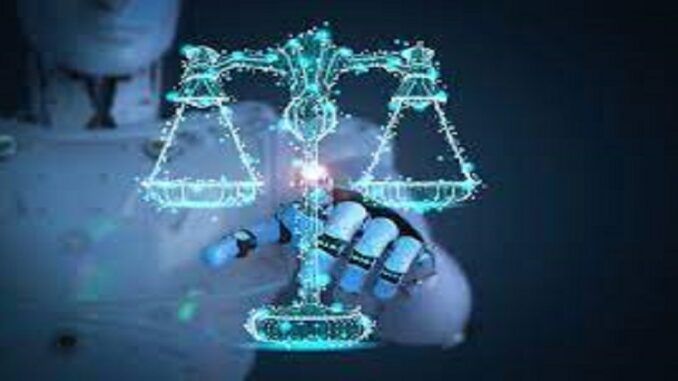
Researchers in China claim they have achieved a world first by developing a machine that can charge people with crimes using artificial intelligence.
The dystopian machine can identify ‘dissent’ against the state and suggest sentences for apparent criminals.
The researchers claim that the AI “prosecutor” can decide on charges with more than 97 per cent accuracy based on a verbal description of the case.

BYPASS THE CENSORS
Sign up to get unfiltered news delivered straight to your inbox.
You can unsubscribe any time. By subscribing you agree to our Terms of Use
There are fears however that the machine, which was built and tested by the Shanghai Pudong People’s Procuratorate, could be weaponised by the state
MSN reports: So far, it can identify and press charges for Shanghai’s eight most common crimes, including credit card fraud, theft, dangerous driving and picking quarrels – an offence often used against dissidents.
The technology was trained using more than 17,000 cases from 2015 to 2020. It can run on a desktop computer and decides whether to press a charge by analysing hundreds of “traits” obtained from a human-generated case description, according to a report in the South China Morning Post.
Once charges are brought they are almost guaranteed to end in conviction, as China’s acquittal rate is less than one per cent.
The project’s lead scientist, Professor Shi Yong, director of the Chinese Academy of Sciences’ big data and knowledge management laboratory, said the machine could free up prosecutors to focus on more difficult tasks.
“The system can replace prosecutors in the decision-making process to a certain extent,” said Shi and his colleagues in a paper published this month in the Chinese peer-reviewed journal Management Review.
China has already been trying to incorporate technologies such as AI and big data to transform the way its legal system works.
In 2017, authorities launched the country’s first cyber court, which allows parties in “digital”-related cases such as e-commerce to appear via video chat in front of virtual AI judges. While the idea is to speed up hearings and help the system deal with larger caseloads, real human judges still monitor what happens and make the key rulings.
In 2016, Chinese prosecutors started using an AI tool to evaluate evidence and assess the level of danger a suspect poses to the public.
But existing AI tools don’t have a role in the decision-making process of filing charges and suggesting punishments, according to Shi and his colleagues.
The team said their machine would become more powerful with upgrades and be able to recognize less common crimes and file multiple charges against a single suspect.
An unnamed prosecutor in the southern Chinese city of Guangzhou told the South China Morning Post that while the machine had a reported accuracy of 97 per cent, “there will always be a chance of a mistake.”
“Who will take responsibility when it happens? The prosecutor, the machine or the designer of the algorithm?” the prosecutor aked.
Apart from the legal push, Chinese authorities have also been trying to use AI in various other sectors to improve efficiency and strengthen government oversight.
US officials have expressed concerns that China’s AI and similar ambitions could eventually give Beijing a critical edge in military, health care and other key sectors.
In October, the Pentagon’s former software chief told the Financial Times that China had already won the AI battle with the U.S. and was heading towards global dominance.


